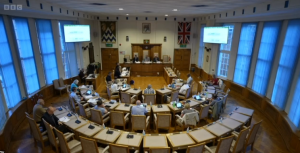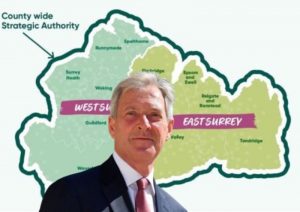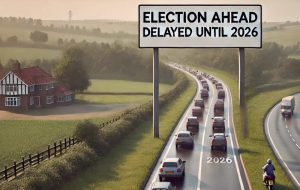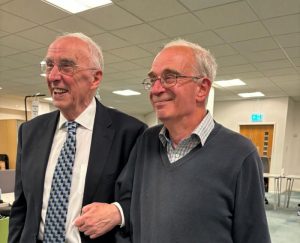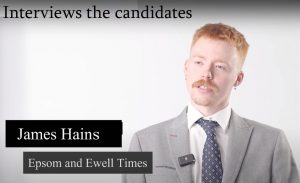Epsom and Ewell Borough Council has launched the second stage of its Community Governance Review (CGR), inviting residents to give their views on whether two new parish-style bodies — Epsom Community Council and Ewell Community Council — should be created when the borough is abolished in 2027 under Surrey’s Local Government Reorganisation.
The consultation runs from 16 December 2025 to 1 February 2026. It proposes that the two new bodies would:
• cover the same geographic area as the present borough
• retain the existing 14 ward structure
• have two elected community councillors per ward
• levy a parish precept of around £43–£46 for a Band D household
If established, the new councils would initially be responsible for allotments and would act as statutory consultees on planning applications. Elections would be expected in May 2027.
The consultation takes place against the backdrop of the transition to the new East Surrey unitary authority, which from April 2027 will replace both borough and county councils across Epsom and Ewell, Tandridge, Reigate and Banstead, Mole Valley and Elmbridge.
The council states that while reorganisation “may open a number of opportunities”, it is also “mindful of the potential impact that losing a more local tier of governance may have for local residents in relation to local representation, resource allocation and priority of services.”
The consultation documents do not present alternative engagement models — such as Surrey County Council’s pilot Neighbourhood Area Committees (NACs) — as response options, a point that several opposition councillors have since raised in correspondence with the Epsom and Ewell Times.
Support for Community Councils: Dalton argues democratic voice must be protected
In a detailed response to the Epsom and Ewell Times, Cllr Hannah Dalton (RA leader – Stoneleigh Ward) set out the Residents’ Association case for progressing the consultation and exploring the creation of community councils.
She notes that Epsom and Ewell “is not alone” in carrying out such reviews, with similar work also under way in a number of other Surrey boroughs and districts. She states that 67% of respondents to the first consultation supported the proposal to investigate community councils further, and argues that residents should not be denied the opportunity to take part in this second and final consultation.
Cllr Dalton links the case for community councils to the scale of democratic change under the new East Surrey authority, writing that the reduction from 35 borough councillors and 5 county councillors to 10 unitary councillors represents “a 75% decrease in democratic representation,” which she describes as “a compelling reason to explore introducing a local Community Council.”
She describes the current proposal as a pragmatic starting point, with a modest precept that would fund administrative capacity and statutory planning consultation functions, while future roles could be agreed with the new unitary authority if appropriate.
Cllr Dalton also expresses scepticism about Surrey’s pilot Neighbourhood Area Committees, stating that evidence from other reorganised areas suggests that such bodies “do not have the requisite powers or representation to deliver for the residents they represent.”
Opposition concerns: cost, mandate and scope of responsibilities
Opposition councillors from the Independent, Liberal Democrat and Conservative groups have written separately to the Epsom and Ewell Times to set out their concerns.
Cllr Alex Coley (Independent Ruxley) warns that while the consultation presents an initial Band D precept of around £45, costs could rise significantly if community buildings and major assets were later transferred to the new bodies. He argues that residents risk facing an “uncapped” additional tax burden if responsibility for high-maintenance assets is devolved in future years.
Cllr James Lawrence (LibDem College) questions the proportionality of the financial model at this stage, highlighting that the only defined operational responsibility is allotment management, while the bulk of projected expenditure relates to administration rather than service delivery. He argues that residents are being asked to approve a structure whose long-term role and cost profile are not yet clear.
Cllr Bernie Muir (Conservative Horton) argues that the proposals recreate an additional layer of local government at a time when reorganisation is intended to simplify structures. She questions the value for money of establishing elected community councils when Surrey’s Neighbourhood Area Committees are being piloted as a lower-cost forum for local voice and partnership working.
A number of opposition members also point to the relatively small number of responses to the first-stage consultation and argue that this does not amount to a clear mandate for creating new precept-raising bodies.
The letters from Councillors — published in full HERE on the Epsom and Ewell Times website — set out contrasting views on democratic representation, accountability, taxation and local identity in the new unitary era.
Neighbourhood Area Committees: an alternative model not included in the consultation
Surrey County Council’s pilot Neighbourhood Area Committees are currently being evaluated after operating across four areas during 2025.
Surrey describes NACs as advisory partnership forums bringing together councillors, public services, voluntary and community organisations and residents to discuss local priorities. They do not have statutory powers or the ability to levy a precept, and have so far been delivered largely using existing staff resources and modest meeting costs.
Supporters of NACs argue that they provide a mechanism for local influence without creating a new tax-raising organisation. Supporters of community councils counter that advisory bodies cannot substitute for an elected local tier with formal status and statutory consultation rights.
The current CGR consultation does not invite residents to express a preference between these models.
See the Epsom and Ewell Times short guide to Neighbour Area Committees (NAC) HERE.
Participation, turnout and cost-benefit questions
The most recent full borough elections in May 2023 recorded an overall turnout of around 34% across Epsom and Ewell. Some opponents of the community council proposals question whether introducing an additional elected body represents good value where participation in local elections is already comparatively low.
Supporters respond that the reduction in democratic representation under the new unitary structure makes it more important, not less, to retain an additional tier through which residents can engage directly with locally-focused representatives.
The debate therefore continues to centre on differing conceptions of democratic voice, accountability and financial prudence during a period of structural change.
What happens next
The CGR consultation materials and questionnaire are available online and in hard copy at Epsom Town Hall, Bourne Hall, local libraries and the Community & Wellbeing Centre.
Public engagement events are scheduled for January, after which councillors will consider the consultation responses at a special meeting on or before 20 March 2026. At that meeting, the council will decide whether to make a Reorganisation Order to create the two new community councils.
Whatever the outcome, the decision will help shape how local representation, identity and civic life in Epsom and Ewell evolve as the borough approaches its transition into the new East Surrey authority in 2027.

Related reports:
Councillor letters to the Editor
Local government reform or just more layers?
Where do we stand on local government reorganisation in Epsom and Ewell and the County?
Parishing Epsom and Ewell is unholy?
Debate Opens on the Future Shape of Surrey’s Local Government
and many more…..


